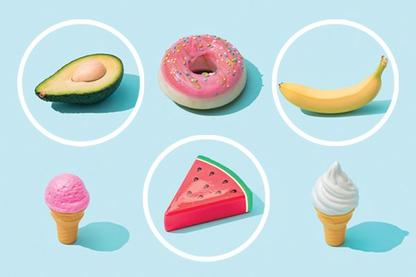What’s Causing Your Headaches?
Posted on August 14, 2020 by Sally-Anne Turner
Everyone gets headaches from time to time. While most go away on their own, some people experience more serious headaches and migraines.
Technically, a headache is defined as any pain in the head region, but the duration, intensity and cause can vary depending on what type of headache it is.
If you ever have a stiff neck, rash, vomiting, confusion, slurred speech, a fever, or paralysis whilst having a bad headache, you should always seek medical attention as this could be the sign of something more severe. Otherwise, keep reading to find out what kind of headache you have and how you could ease your symptoms.
Primary headaches occur when the pain in your head is the symptom and your headache is not being caused by any other illness or allergy. These can be split into episodic headaches, which happen once in a while and only last between 30 minutes and a few hours. Chronic headaches are slightly different, they are very consistent and can cause a greater deal of pain.
Tension
This type of headache causes a dull and aching sensation all over, with tenderness around the neck, forehead, scalp and, in some cases, shoulders. Anyone can experience a tension headache and they are usually triggered by high levels of stress. Over the counter medication like aspirin and ibuprofen can usually relieve these symptoms. If these become more chronic, then you may wish to seek medical advice. Exercises that relieve tension such as yoga can be a solution for this type of headache.
Cluster
A cluster headache causes severe and piercing pains, usually behind the eye or at one side of the face. These often come and go for a whole day or a few days at a time, and when one headache finishes, another will often follow. It’s not certain what causes these headaches, but they are more frequent in the spring and autumn seasons. They are also three times more common in men. If you do suffer with this type of headache then visit your doctor who should be able to help. Cutting out alcohol and tobacco and getting enough sleep are also thought to reduce this type of headache.
Migraines
A migraine is an intense pulsing from deep within your head. It’s often so severe that you are not able to continue with your daily routine and can sometimes last for days. People that are having a migraine are usually very sensitive to light and sound and they can feel nauseous or sick. Many people experience visual disturbances before a migraine starts, like flashing lights, blind spots or stars, as well as tingling sensations down one side of your body. Migraines however, can mimic the signs of a stroke, so it’s important that you seek medical attention if it does get bad.
Allergies
Sometimes people can get headaches due to an allergic reaction. These can often be felt at the front of the forehead and are particularly bad for those who suffer from seasonal allergies or sinusitis. Nasal steroid sprays can be very affective at treating this type of headache.
Hormones
Women can be susceptible to headaches that are linked to their hormone fluctuations during menstruation, pregnancy, menopause or because of birth control. Over the counter medication is an effective way of treating these headaches for most women, but relaxation practice can also be a great way of preventing these from happening in the first place. Yoga and acupuncture can be very popular amongst people who suffer badly with hormonal headaches.
Exertion
Sometimes, after intense periods of exercise some people can get a headache. This is down to increased blood flow through your body, which can cause a throbbing sensation in the head. The good thing is that these headaches don’t usually last long and can quickly be cured with a big gulp of water and five minutes of down time. However, if these are a frequent occurrence then you should seek medical attention as this could be a sign of something more serious.
Caffeine
Too much caffeine can trigger a headache as it causes increased blood flow to the brain. Similarly, going cold turkey can cause headaches as your body begins to crave the caffeine fix. Not everyone that drinks coffee will experience this and if you keep your consumption at a steady level then you should be able to cope just fine with or without it.
In most cases, headaches should go on their own with help from simple medications, but if they do begin to become more consistent, always make sure that you get the right kind of help by seeking medical advice. Even for chronic headaches, there’s usually a solution out there that will work.







